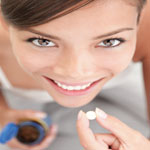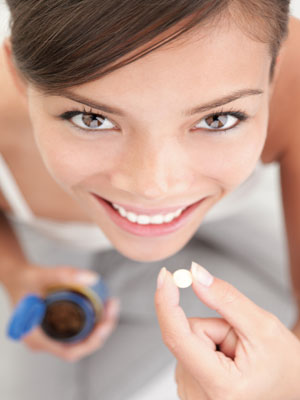Like fashion, hair and makeup, supplements go in and out of style. One moment everyone is raving about the benefits of ginko, the next moment it’s flax seed oil that will solve all your health and beauty problems.
The supplement business is huge, with over $30 billion (you read that right) being spent in America last year on supplements, according to a recent trade journal report. And while some herbal (and other types of supplements) have been shown in studies to have actual health benefits, some have little benefit and can even be very dangerous. How dangerous? Certain supplements (or too much of a supplement) can cause anything from insomnia to heart attack and death. Below is a brief overview of some unsafe supplements to think twice about.
Ma huang (also known as ephedra):
A traditional Chinese medicine that has been used for over 5,000 years to treat asthma, colds, and other respiratory infections, it rose to notoriety when it began to be included in drugs to treat weight loss. This unsafe herbal supplement can cause high blood pressure, stroke, heart attack and death. It has been banned in America by the FDA.
Chaparral:
This supplement has been touted as a miracle cure for everything from infections and overeating to inflammation and cancer. Unfortunately, this unsafe supplement has been linked to both liver damage and kidney problems. Avoid any type of supplement containing this ingredient.
Ginseng:
This is a very popular herbal supplement, usually found in a pill form. Its benefits range from curing asthma to improving memory to slowing the aging process. However, it can also cause increased blood pressure and an increased heart rate. If you have diabetes, ginseng can induce hypoglycemia. While some research has shown that most negative side effects are caused by Siberian ginseng, not in supplements made from American or Chinese ginseng, it may be best to just skip this unsafe supplement altogether.
St. John’s wort:
This can usually be found in either tea or capsule form. A popular herbal supplement for treating depression, St. John’s wort can interact with prescription depression drugs to actually increase depression, and can also lessen the effectiveness of certain HIV drugs. Place this on your unsafe list.
Bitter orange:
This can be found in herbal supplements for weight loss and certain allergies, and is sometimes marketed as a stimulant. However, some research has shown that it can also cause heart problems, stroke and even death. Bitter orange can have serious interactions with prescription medications as well, so if you choose to try it, be sure to tell you physician.
Lobelia (tobacco herb):
This herb is also known as vomit wort “ mmm, that alone should turn you off. Found in herbal treatments, usually in the form of a tea, for quitting smoking or treating asthma and other respiratory symptoms, this unsafe supplement may cause low blood pressure, coma, and possibly death.
What’s the takeaway here? Learn about a supplement before taking it, watch for side effects, and always let your doctor know if you are taking one to avoid any type of drug interaction. And be safe.













